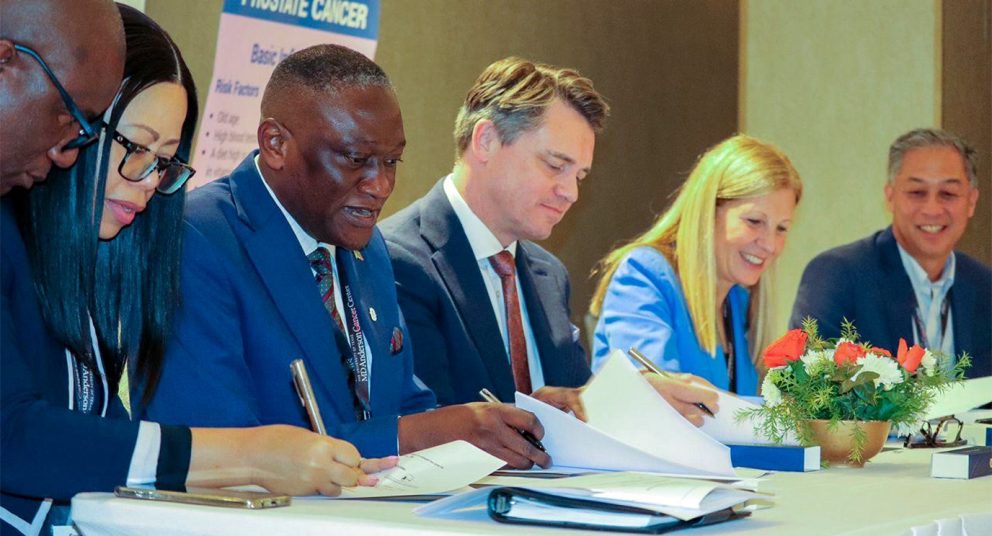The University of Texas MD Anderson Cancer Center today announced the further expansion of its global oncology efforts by signing a memorandum of understanding with the Ministry of Health of Zambia. The new, five-year agreement aims to enhance cancer prevention, treatment, research and education, thereby improving access to quality cancer care and reducing the cancer burden in Zambia.
"This collaboration with the Zambian Ministry of Health represents a significant step forward for MD Anderson's global strategy and our mission to end cancer," said Peter WT Pisters, M.D., president of MD Anderson. "Through this joint effort, we can improve training, education and cancer research in Zambia, ultimately elevating the standard of cancer care through a sustainable approach."
MD Anderson began collaborating with Zambia's Cancer Diseases Hospital in Lusaka in 2013, with a particular focus on radiation oncology. The institution will now work directly with the Ministry of Health to support its national cancer control planning and implementation, and also to expand capacity-building efforts across the country. Focus areas include breast and cervical cancers, in alignment with the World Health Organization's (WHO) global priorities in adult cancer.
Zambia, like many other low- and middle-income countries, faces significant challenges with high cancer rates. The incidence of cancer is increasing, with the most common types including cervical cancer, breast cancer, prostate cancer and Kaposi sarcoma. High cancer mortality rates in Zambia often are due to a lack of public awareness, limited cancer prevention services, late-stage diagnoses, and limited access to advanced medical care and treatment options.
According to WHO, Zambia has the third highest burden of cervical cancer in the world. Cervical cancer accounts for about 23% of all new cancer cases in the country and is the leading cause of cancer-related death for Zambian women. In coordination with the Ministry of Health, MD Anderson provides training for Zambian health care professionals to expand cervical cancer screening and treatment of pre-invasive disease. Additionally, MD Anderson is training Zambian radiologists in breast cancer imaging and diagnosis.
"By formalizing our collaboration with Zambia's Ministry of Health, we are deepening our commitment to enhancing cancer training and capacity building throughout the region," said Kathleen Schmeler, M.D., associate vice president of Global Oncology and professor of Gynecologic Oncology and Reproductive Medicine. "This collaboration signifies a pivotal step forward in our collective efforts to empower health care professionals and to enhance cancer prevention, diagnosis and treatment in Zambia."
MD Anderson's Strategy, aimed at making the greatest impact on humanity in the institution's work to end cancer, is advanced by aligning with others to provide expertise in medically underserved settings. As part of its Global Oncology program, MD Anderson collaborates with governments and mission-aligned organizations to advance cancer education, training, public policy and research initiatives in low- and middle-income countries.
MD Anderson previously has announced international collaborations aimed at advancing global cancer care. These efforts include an agreement with WHO to reduce the global burden of women's cancers and an agreement with the Pan American Health Organization (PAHO) to strengthen cancer prevention and control across the Americas. Additionally, MD Anderson has been named an International Atomic Energy Agency (IAEA) Collaborating Centre and has formed agreements with both the Mozambique and Indonesia Ministries of Health.







